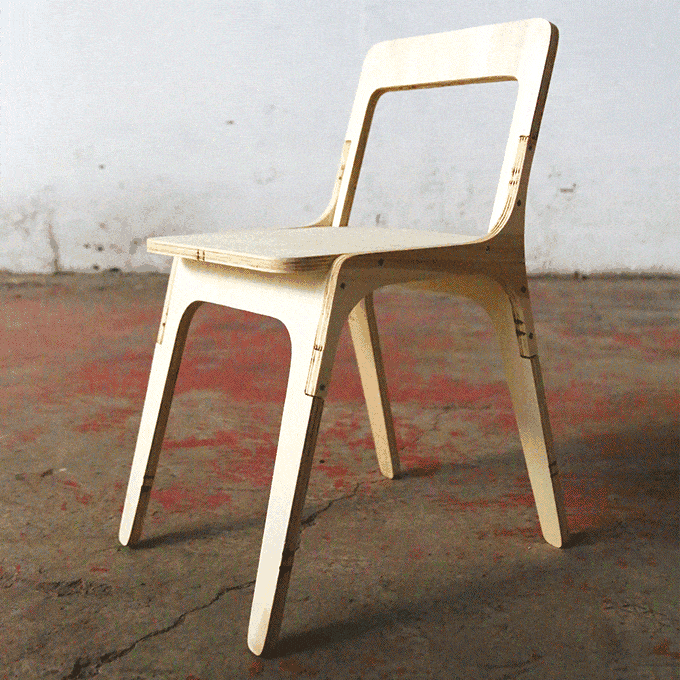
The phrase “autonomous cutting machine” may sound like something out of Terminator but this clever little robot, called the Goliath CNC[1], wants to help humanity, not harm it.
Created by Lorenzo Frangi, Alessandro Trifoni, and Davide Cevoli, the robot is basically a free-rolling CNC machine that can crawl over a surface and etch and cut lines into many materials. The machine uses a drill bit and multi-directional wheels and can automatically measure the size of the material you’re cutting.
The team has pre-sold over 400 machines and raised $814,000. It will ship this month. It costs $1,850.

“Goliath CNC can be positioned directly on the work surface: this innovative mode of operation makes it a machine tool with a boundless work area because it matches the workpiece’s surface,” said Frangi. “The user can design or download designs from online project libraries, then upload the drawing to Goliath and supervise the work progress by a computer, smartphone or tablet.”
Because the machine is portable you can build wherever you want and even drag it to job sites where it can cut out pieces automatically. It has automatic leveling so it doesn’t drill haphazardly.
“The concept of Goliath CNC was born at the beginning of 2014 as my thesis project for the Master Degree in Design & Engineering at the Politecnico of Milano,” said Frangi. “I wished to contribute somehow to the digital fabrication tools’ world, which together with the Maker movement pick my attention for the enthusiasm and great success reached – at least in Italy! – and especially dealing with 3D printing. I wanted to develop something able to manufacture real and quality materials, so I focused on CNC milling machines of a desktop size.”
While...
Read more from our friends at TechCrunch
Recent high-profile cyber security breaches at Equifax and other financial institutions highlight the perils of an all-digital economy. When wealth can be evaporated or expropriated at the stroke of a key, how secure can your finances really be?
Obviously, there is a big difference between wealth you can tangibly hold and wealth that exists only in electronic form.
One advantage of paper cash is that it can’t be hacked or stolen digitally. Paper money isn’t by any means hard money like gold and silver, but it does at least provide some of the privacy and convenience features that come with tangible assets. That’s why bankers and bureaucrats want to ultimately ban the use of paper Federal Reserve Notes and force all cash transactions to go online.

A recent story in the Wall Street Journal suggested, “reducing the supply of cash in the U.S. could help lower crime and make the Fed’s job easier.” Limiting our access to cash... to help monetary central planners do their job – somehow it didn’t occur to the Founders to enshrine that principle into the Constitution!
Kenneth Rogoff, former chief economist at the International Monetary Fund, says eliminating $50 and $100 bills is necessary to reduce tax evasion and black-market transactions.
According to Rogoff, “Another advantage of eliminating large bills would be the effect on monetary policy. The Federal Reserve should be able to implement negative nominal interest rates vastly more effectively in the absence of large bills, which could prove quite important as a stimulative tool in the next financial crisis.”
A negative interest rate policy is effectively a tax on holding cash in a bank. But the policy doesn’t work so well when people can hold paper